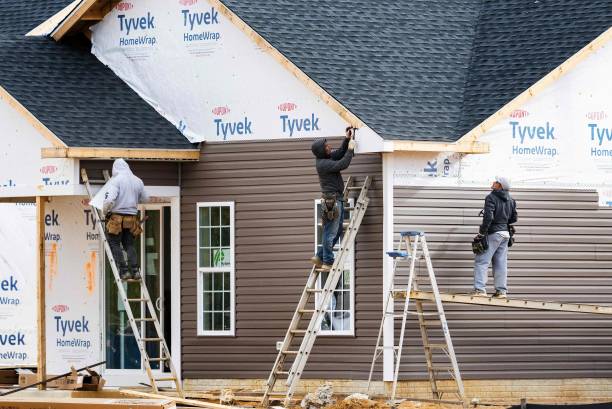Free Home Loan Pre Approval: Your Key to Confident House Hunting. Are you in the market for a new home? Excited to embark on a journey towards homeownership? One crucial step you should consider before diving into the housing market is obtaining a free home loan pre-approval. In this article, we’ll guide you through the importance of pre-approval, the process, and its benefits, ensuring you step into the real estate world fully prepared.
Table of Contents
- Introduction
- What is Home Loan Pre-Approval?
- The Process of Getting Pre-Approved
- Gathering Necessary Documents
- Choosing a Lender
- Application Submission
- Credit Check
- Waiting Period
- The Advantages of Pre-Approval
- Clear Budget
- Enhanced Negotiation
- Quick Buying Process
- Competitive Edge
- Factors Affecting Pre-Approval
- Credit Score
- Income and Employment
- Debt-to-Income Ratio
- Common Misconceptions about Pre-Approval
- Guaranteed Loan
- Impact on Credit Score
- Is Pre-Approval Worth It? Absolutely!
- FAQs About Home Loan Pre-Approval
- Conclusion
What is Home Loan Pre-Approval?
Home loan pre-approval is a crucial initial step in the homebuying process. It serves as an essential tool that empowers potential homebuyers by giving them a clear understanding of their financial capabilities within the real estate market. Essentially, pre-approval involves a comprehensive evaluation performed by lenders to assess your suitability for a home loan.

The Evaluation Process
During the pre-approval process, lenders take a deep dive into your financial history and present circumstances. This thorough assessment goes beyond a simple credit check and encompasses various aspects that contribute to your financial health.
Financial Standing
Lenders closely examine your financial status, considering factors such as your income, assets, and existing debts. This evaluation helps them gauge your capacity to handle mortgage payments while maintaining your current financial commitments.
READ ALSO;
- Mesothelioma Trust Fund Wiki: Providing Financial Support and Information
- Credit Cards for Traveling Internationally: Your Ultimate Guide
- Uber Auto Insurance in California: A Comprehensive Guide
- The Best Zero Interest Balance Transfer Credit Cards: A Guide
- Apply for a Small Business Loan: Fuel Your Dreams with Financial Support
Credit History
Your credit history plays a pivotal role in the pre-approval process. Lenders assess your credit score and credit report to determine your creditworthiness. A strong credit score indicates responsible financial behavior and increases your chances of pre-approval.
Ability to Repay
Lenders want assurance that you can comfortably repay the loan over its term. They analyze your debt-to-income ratio, which compares your monthly debts to your monthly income. This assessment helps lenders assess the level of risk associated with lending to you.
Pre-Approval Amount
Upon completion of the evaluation, lenders provide you with a pre-approval amount. This is the maximum loan amount they are willing to lend you for purchasing a home. This figure takes into account your financial details and helps you set a realistic budget for your home search.
Not a Final Commitment
It’s important to note that pre-approval is not a final commitment to provide you with a loan. While it offers insight into your purchasing power, it’s contingent on the information provided and is subject to change based on the outcome of the final underwriting process. Pre-approval is a valuable tool, but it’s not a guarantee of obtaining a mortgage.
The Benefits of Pre-Approval
Obtaining home loan pre-approval offers several significant advantages for prospective homebuyers. It provides clarity, confidence, and a competitive edge in the real estate market. With pre-approval in hand, you’re better equipped to navigate the homebuying journey, make informed decisions, and secure your dream home.
By obtaining pre-approval, you gain valuable insights into your financial capabilities, allowing you to set a realistic budget for your home search. Furthermore, pre-approval demonstrates to sellers that you’re a serious buyer with the financial backing to make a purchase. This can lead to more favorable negotiations and a smoother transaction process.
In essence, home loan pre-approval is not only a practical step but a strategic one. It positions you as a well-prepared buyer who is ready to take confident strides in the exciting journey of homeownership.
The Process of Getting Pre-Approved
Gathering Necessary Documents
To start the pre-approval process, you’ll need to gather essential documents such as proof of income, tax returns, employment history, and details about your assets and debts. These documents help the lender understand your financial stability.
Choosing a Lender
Selecting the right lender is crucial. Look for lenders offering favorable terms and competitive interest rates. You can approach banks, credit unions, or online lenders for pre-approval.
Application Submission
Submit a pre-approval application with the lender of your choice. This usually involves filling out a detailed form where you provide information about your financial situation.
Credit Check
The lender will perform a credit check to assess your creditworthiness. While this inquiry may have a slight impact on your credit score, the benefits of pre-approval outweigh this concern.
Waiting Period
After submitting your application, there’s typically a waiting period as the lender reviews your documents and assesses your eligibility. This is an opportune time to explore available home options.
The Advantages of Pre-Approval
Clear Budget
Pre-approval helps you establish a clear budget range for your home search. You’ll know exactly how much you can afford, making it easier to narrow down your options and avoid wasting time on properties beyond your financial reach.
Enhanced Negotiation
With a pre-approval letter in hand, sellers see you as a serious and capable buyer. This enhances your negotiation position and might even lead to better deals.
Quick Buying Process
Once you find the perfect home, having pre-approval speeds up the buying process. Since the initial financial assessment is complete, the final loan approval process tends to be faster.
Competitive Edge
In competitive real estate markets, having pre-approval can make you stand out among other potential buyers. Sellers are more likely to consider offers from buyers who have already secured pre-approval.
Factors Affecting Pre-Approval
Credit Score
Your credit score plays a significant role in the pre-approval process. A higher credit score usually leads to better loan terms and a higher pre-approved amount.
Income and Employment
Lenders assess your income stability and employment history to ensure you can meet your repayment obligations.
Debt-to-Income Ratio
A lower debt-to-income ratio increases your chances of pre-approval, as it indicates you have more disposable income available for loan payments.
Common Misconceptions about Pre-Approval
Guaranteed Loan
Pre-approval is not a guarantee of a loan. It’s an estimate based on the information provided. Final loan approval comes after a more detailed assessment.
Impact on Credit Score
While a credit check is required for pre-approval, the impact on your credit score is usually minimal and short-lived.
Is Pre-Approval Worth It? Absolutely!
Obtaining a free home loan pre-approval is undoubtedly worth the effort. It empowers you as a buyer, streamlines the buying process, and provides you with a clear financial roadmap.
Frequently Asked Questions (FAQs) About Home Loan Pre-Approval
- What is home loan pre-approval? Home loan pre-approval is a preliminary assessment conducted by lenders to determine how much they are willing to lend you for purchasing a home. It involves evaluating your financial standing, credit history, and ability to repay the loan.
- Is pre-approval the same as pre-qualification? No, pre-approval and pre-qualification are distinct. Pre-approval involves a more thorough evaluation of your financial situation and carries more weight in terms of credibility.
- How does pre-approval differ from final loan approval? Pre-approval is an initial assessment based on the information provided, while final loan approval involves a detailed underwriting process to confirm your eligibility and finalize loan terms.
- What documents are required for pre-approval? Common documents include proof of income, tax returns, employment history, credit history, and information about your assets and debts.
- Does pre-approval guarantee a loan? Pre-approval isn’t a guarantee of a loan. It’s an estimation of how much a lender is willing to lend you based on the information available at the time.
- How long does the pre-approval process take? The duration varies, but it typically takes a few days to a couple of weeks, depending on the lender’s process and your responsiveness in providing required documents.
- Does pre-approval affect my credit score? Yes, pre-approval involves a credit check, which may result in a slight dip in your credit score. However, the impact is usually minimal and short-lived.
- Can I switch lenders after pre-approval? Yes, you can switch lenders, but each new application may trigger a credit inquiry, potentially affecting your credit score.
- How long is pre-approval valid for? Pre-approval validity typically ranges from 60 to 90 days, but it can vary based on the lender’s policies.
- Can I make an offer above my pre-approved amount? While it’s possible, it’s advisable to stay within your pre-approved range to avoid potential financing challenges.
- What if my financial situation changes after pre-approval? If your financial circumstances change significantly (e.g., job loss, major debt), inform your lender promptly. Your pre-approval may need to be re-evaluated.
- Does pre-approval guarantee the interest rate? No, pre-approval doesn’t guarantee a specific interest rate. Rates can fluctuate between the pre-approval stage and final loan approval.
- How often can I get pre-approved? There’s no strict limit, but frequent pre-approvals can lead to multiple credit inquiries, which might affect your credit score.
- Can I get pre-approved for an amount higher than I can afford? While pre-approval provides an estimated loan amount, it’s essential to assess your budget and ensure that your monthly mortgage payments are manageable.
- Can pre-approval be denied? Yes, pre-approval can be denied if your financial situation doesn’t meet the lender’s criteria. It’s crucial to work on improving your financial standing before reapplying.
- Is pre-approval necessary before house hunting? While it’s not mandatory, pre-approval gives you a clear budget range and enhances your credibility as a serious buyer in the eyes of sellers.
- Should I get multiple pre-approvals from different lenders? While it’s possible, getting multiple pre-approvals can be time-consuming and may affect your credit score. Research and choose a reputable lender to start.
- Can I remove contingencies if I have pre-approval? Pre-approval doesn’t eliminate the need for contingencies in the homebuying process. Inspections and other contingencies are still crucial for protecting your interests.
- How accurate is the pre-approval amount? The pre-approval amount is an estimate based on the information provided. It’s essential to factor in potential changes during the homebuying process.
- Is pre-approval required for all types of home loans? While pre-approval is highly recommended, it’s particularly important for conventional and FHA loans. Some sellers may require pre-approval before considering your offer.
Remember, each lender may have specific policies and requirements for pre-approval. It’s essential to communicate openly with your chosen lender and seek clarification on any doubts you have during the pre-approval process.
Conclusion
In the fast-paced world of real estate, having a free home loan pre-approval can be a game-changer. It equips you with the knowledge and confidence needed to navigate the market successfully. Remember, with a pre-approval in hand, you’re not just a dreamer – you’re a determined homebuyer with a clear path to homeownership.
